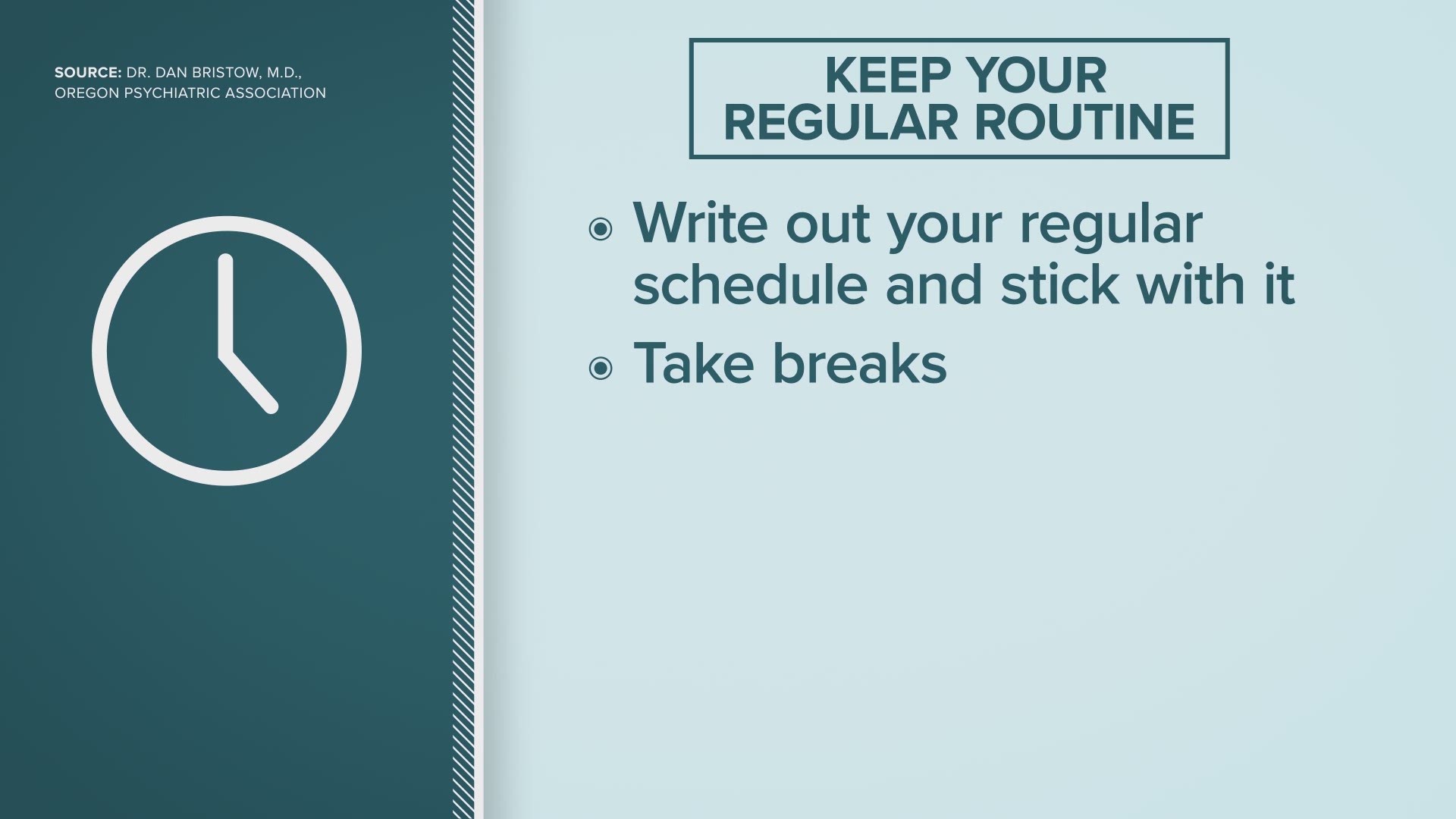SEATTLE — Social distancing doesn’t have to mean socially disconnecting.
While we are staying closer to home, farther away from others, and even working from home, how do you stay positive during the coronavirus (COVID-19) pandemic?
We talked with Dr. Dan Bristow, a psychiatrist who counsels people, who shared five tips to help us through these turbulent times:
Keep your routine
Keep your normal routine if you are working from home. Write out a schedule and stick to it. You should also take breaks and step away from work and all the news to clear and settle your mind.
Also see | What is social distancing?
Eat when you normally eat. Your body and mind are used to a routine. You should also keep your normal sleep schedule. It may feel like a vacation, but uneven sleep can add to the stress.
Stay active
You may find yourself glued to your work or your screens. Stop and go outside because fresh air and daylight help reduce stress.
Try going for a walk. Twenty minutes of exercise can lower blood pressure and calm the mind.
Also see | Social distancing is a walk in the park
You should also try not to sit all day. Get up and move around. Stretch or try doing yoga. This is good any day, but when stress is higher, it really helps.
Limit social media
It’s hard not to want to keep up with everything in the news, but try to limit social media. Constant scrolling can lead to feeling more disconnected.
Posts on social media can also be misleading and full of misinformation about COVID-19. So, visit trusted sites for information, like the Centers for Disease Control and Prevention or local health authorities.
Getting the facts will help settle fears and bring the news into a better perspective.
Stay in contact with friends and family
Use social apps and video calls to stay connected with family and friends, even if they are just across town or even just next door.
Check-in and ask how they are doing and share how you are doing as well. Be open and try having an online party.
Gatherings help bring us together, even if we are apart.
Be flexible and realistic with yourself
A new socially isolated routine will take time to figure out. Be realistic with yourself and set reasonable expectations.
Give yourself time to work out the details and don’t expect to be as productive right away. You have to build new habits into your new, temporary, life.

